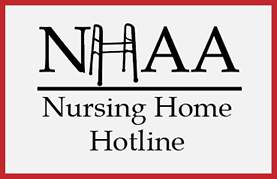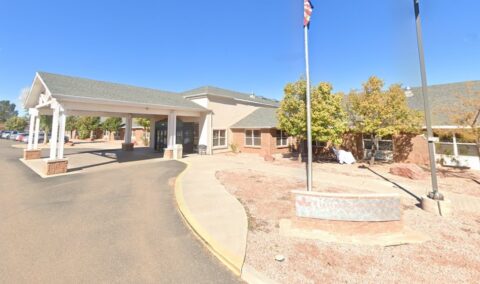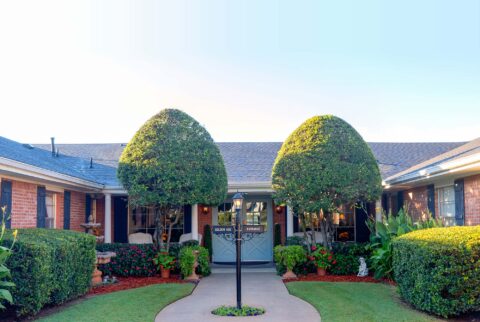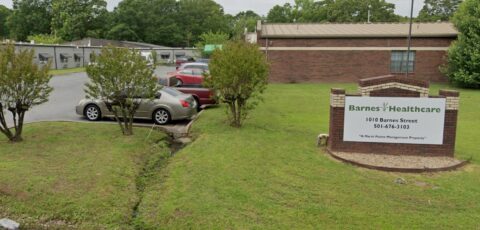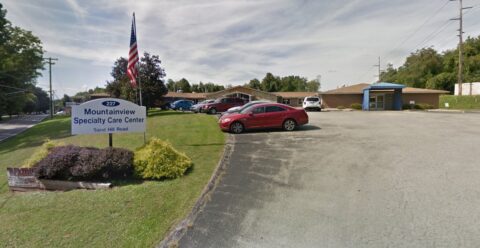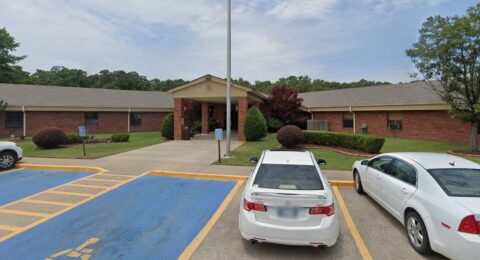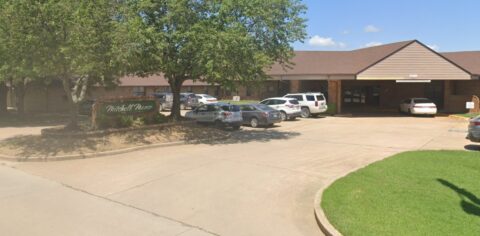In The News:

By Marjie Lundstrom, FairWarning
This article was produced by FairWarning, a nonprofit news organization based in Southern California that focuses on public health, consumer and environmental issues.
Flies buzzing the undercooked hamburgers. Cockroaches scurrying for cover behind the oven. A moldy ice machine. Mystery debris, clinging to the crevices of a meat slicer. Hundreds of mouse droppings, trailing across the hood of the stove.
These incidents are not logged in any restaurant inspector’s notebook. They are among the thousands of food safety violations discovered in the last three years in America’s nursing homes, where fragile residents can least tolerate such lapses.
While allegations of elder abuse and neglect dominate the horror stories in long-term care settings — bedsores, falls, medication errors, sexual assaults — food handling remains a consistent and often overlooked hazard, FairWarning found in a five-month investigation.
“There’s huge underreporting of food issues,” said Charlene Harrington, a nurse and professor at the University of California, San Francisco, who has researched nursing home quality.
“It’s an accepted practice to have crappy conditions in the kitchen,” she said. “And people are just totally unaware of it.”
As America’s population ages, hundreds of thousands of baby boomers have found their way into nursing homes, assisted living communities and memory care units. With this wave of seniors has come new dining demands, a culinary call that has been answered in some places with gourmet chefs, a panoply of fresh fruits and vegetables and other healthy flourishes.
But dangerous and unhealthy conditions persist.
FairWarning’s investigation, based on inspection reports, federal data and interviews with residents and long-term care experts, found that residents nationwide are at risk for foodborne illness from unsafe kitchens.
Across the country, 230 foodborne illness outbreaks were reported from 1998 to 2017 in long-term care settings, according to the Centers for Disease Control and Prevention. The outbreaks resulted in 54 deaths and 532 hospitalizations, and sickened 7,648 people.
Not all foodborne illnesses in long-term care are directly caused by poor sanitation; some outbreaks result from contaminated food brought in from the outside.
But critical internal mistakes have happened. Last year, 29 residents and 32 staff members at the Pine View Care Center in Black River Falls, Wisconsin, were sickened in a norovirus outbreak, according to the government’s inspection report. Investigators found that kitchen staff had repeatedly failed to check the sanitizer levels in the dishwasher and didn’t know the injector was clogged, the report said. The facility’s administrator did not return phone calls or email for comment.
While foodborne illness is a threat to any age group, people over 65 are especially susceptible due to weakened immune systems, chronic diseases, immobility and age-related changes in their digestive systems.
Yet unlike restaurant patrons, who can walk away from bad meals — and trash the establishment later on Yelp — long-term care residents are basically stuck.
Dangerous food handling common
Unsafe food handling was the third most frequently cited violation last year inside America’s estimated 15,700 nursing homes, behind only infection control and accidents, according to data from the Centers for Medicare & Medicaid Services, which regulates nursing homes that receive federal money. These figures do not include assisted living communities, which have no nationwide centralized data collection and are licensed by the states, which create their own standards.
In 2018, 33 percent of nursing homes were cited for violating the federal requirement to safely store, prepare and serve food.
Several of the largest nursing home chains had even worse track records, federal data show.
Genesis HealthCare, the nation’s largest for-profit chain with some 400 facilities in 27 states, saw more than 43 percent of its nursing homes cited for food safety lapses last year. “We are aware of some regulatory compliance issues and are working diligently to resolve any problems as quickly as possible,” Genesis spokeswoman Lori Mayer said in an email.
Dr. David Gifford, a senior vice president and chief medical officer of the trade group for long-term care providers, defended the industry’s handling of food safety in an email to FairWarning.
“Because long-term care providers take many steps to prevent outbreaks of foodborne illness, such outbreaks are rare,” said Gifford of the American Health Care Association, which represents more than 13,500 nonproft and for-profit facilities for the elderly and disabled.
“The vast majority of issues identified during inspections are important to correct but are rated by the state and federal officials as unlikely to put anyone’s health at significant risk.” Examples of less critical offenses that can result in citations, he wrote, include things like staff members failing to wear gloves, a bearded worker without a face guard or unlabeled leftovers.
Feds propose rollback
The true extent of foodborne illnesses and deaths in long-term care is unknown, since the CDC data is almost certainly an undercount.
A CDC spokesman said the agency relies on the voluntary reporting of foodborne illness outbreaks by state, local and territorial public health departments, and that some of these agencies have limited resources and training. Another “major limitation” in the data collection is that many illnesses go unreported because the sick individuals never seek medical care and get diagnosed, he said.
And federal safeguards for this vulnerable population may be eroding.
In July, the Trump administration moved to roll back a series of protections for nursing home residents, including one proposal that would lower the qualifications for directors of food and nutrition services. The government contends that the changes would eliminate requirements that are “unnecessary, obsolete or excessively burdensome.”
“They’re clearly weakening the standards regarding food service and the safety of food handling,” said Richard Mollot, executive director of the New York-based Long Term Care Community Coalition, a nonprofit focused on improving care in nursing homes and other residential settings.
Gifford, of the trade association, argues that the changes would address “workforce concerns, particularly in rural areas,” by allowing facilities to retain “qualified” staff who have worked there for years.
Serial offenders
Long-term care advocates blame many food safety problems on operators who are so intent on increasing profits that they routinely skimp on residents’ dietary needs, or slash kitchen staff.
Some nursing homes violate the same food safety rule again and again. Since January 2016, about a third of all nursing homes were cited two or more times for the same food safety violation, according to a FairWarning analysis of federal data.
Gifford noted that repeat citations may result from the array of issues that fall under the same food safety regulation.
FairWarning’s analysis found that one Arkansas nursing home was written up seven times in the last three years, receiving a single fine of less than $8,000. Violations at The Waters of North Little Rock, previously known as the North Little Rock Health and Rehabilitation Center, included unsealed foods in storage, grimy kitchen appliances and staff with unwashed hands touching residents’ food, inspection reports show.
When the nursing home was cited a sixth time in July 2018, a government inspector asked the director of nursing if she would eat the food prepared in the kitchen.
“No,” the nurse responded, according to the inspection report.
Your Experience Matters
...and we want to hear it.
NHAA is here to assist families, residents, and the community by sounding the alarm on issues like those found above. This nursing home and many others across the country are cited for abuse and neglect.
If you have or had a loved one living in this nursing home or any other nursing home where you suspect any form of abuse or neglect, contact us immediately.
We have helped many already and we can help you and your loved one as well by filing a state complaint, hiring a specialized nursing home attorney or helping you find a more suitable location for your loved one.
You can make a difference, even if your loved one has already passed away.
Please give us a call at 1-800-645-5262 or fill out our form detailing your experience.
Personal Note from NHA-Advocates
NHAA shares with all the families of loved ones who are confined to nursing homes the pain and anguish of putting them in the care of someone else. We expect our loved ones to be treated with dignity and honor in the homes we place them. We cannot emphasize enough to family members of nursing home residents; frequent visits are essential to our loved ones’ well-being and safety.
If you are struggling and upset, click here to understand your options, or contact us through our contact form or call our toll free hot line number: 1-800-645-5262.
